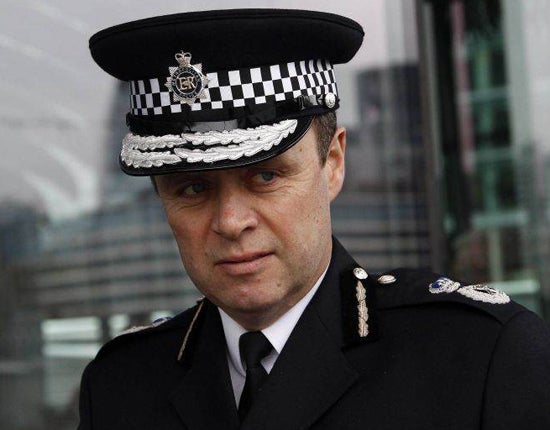Police say evidence is strong enough for prosecution

Senior officers at Scotland Yard believe they have new evidence strong enough to form the basis for criminal charges on phone hacking.
The Metropolitan Police announced on Wednesday that it would open a fresh investigation into alleged phone hacking at NOTW after receiving new evidence from News International, the Sunday tabloid's parent company.
John Yates, the acting deputy commissioner, said yesterday that the evidence – believed to be a series of emails which could link the former NOTW news editor Ian Edmondson to phone hacking – was "the first significant new evidence which may have a chance of being admissible [in court]".
Previously the Met had been criticised for failing to prosecute anyone other than the private investigator Glenn Mulcaire and Clive Goodman, the NOTW's former royal reporter, despite allegations linking other figures at the newspaper to hacking.
Yesterday Mr Yates said those allegations were not strong enough to base a prosecution on, but that the new evidence could be. "In their view [that of the Crown Prosecution Service] the material that we were able to gather... fell well short of being admissible evidence," he said. "This is a new investigation with new material where there is a prospect of developing some promising lines of enquiry."
Mr Yates was speaking alongside Tim Godwin, who is acting commissioner while Sir Paul Stephenson recuperates from an operation. The pair were being questioned by members of the Metropolitan Police Authority.
Their appearance came amid widespread criticism of Scotland Yard's handling of the investigation and marks a rare occasion when senior figures from the Metropolitan Police have publicly discussed the case.
Members of the committee asked why no further prosecutions had been brought despite the emergence of new witnesses who claimed that phone hacking was commonplace at the NOTW. And one member commented that Mr Yates had appeared "tetchy" when being asked about the force's failure to act last year.
Hinting at his frustration with the continuing media critique of the investigation, Mr Yates responded: "If I appeared tetchy it was because I was being expected to act upon facts that in no way could be developed into evidence. I was being asked to act upon rumour, innuendo and gossip."
The senior officers were asked why the Met refused to disclose all meetings their officers have had with News International journalists. Mr Godwin said that he would attempt to get that information for the authority, although it is understood that the hospitality information kept by the Met does not normally have the details of the media organisations whose journalists the officers are meeting.
The former deputy prime minister Lord Prescott, whose phone was hacked, called for a judicial review into the Met's handling of the case so far. "I just don't trust the Metropolitan Police to conduct a proper inquiry," he said. "I can't trust them to carry out a proper inquiry and that's why I asked the courts for a judicial review on the Metropolitan Police and the way they've conducted investigations."
Lord Fowler, a Conservative former Cabinet minister and ex-chairman of the Lords Communications Committee, said there should be a full inquiry into phone hacking by journalists once the criminal investigation was over.
"It is necessary because the public need protecting. We need to know what techniques were used, we need to know how widespread they were, and above all how the public can be protected," he told the BBC.
Alastair Campbell, who was Tony Blair's director of communications in Downing Street, also criticised the police: "Why was none of this done before, either by the newspaper group or by the police? Both of them I think still have a lot of things to answer."
Subscribe to Independent Premium to bookmark this article
Want to bookmark your favourite articles and stories to read or reference later? Start your Independent Premium subscription today.
